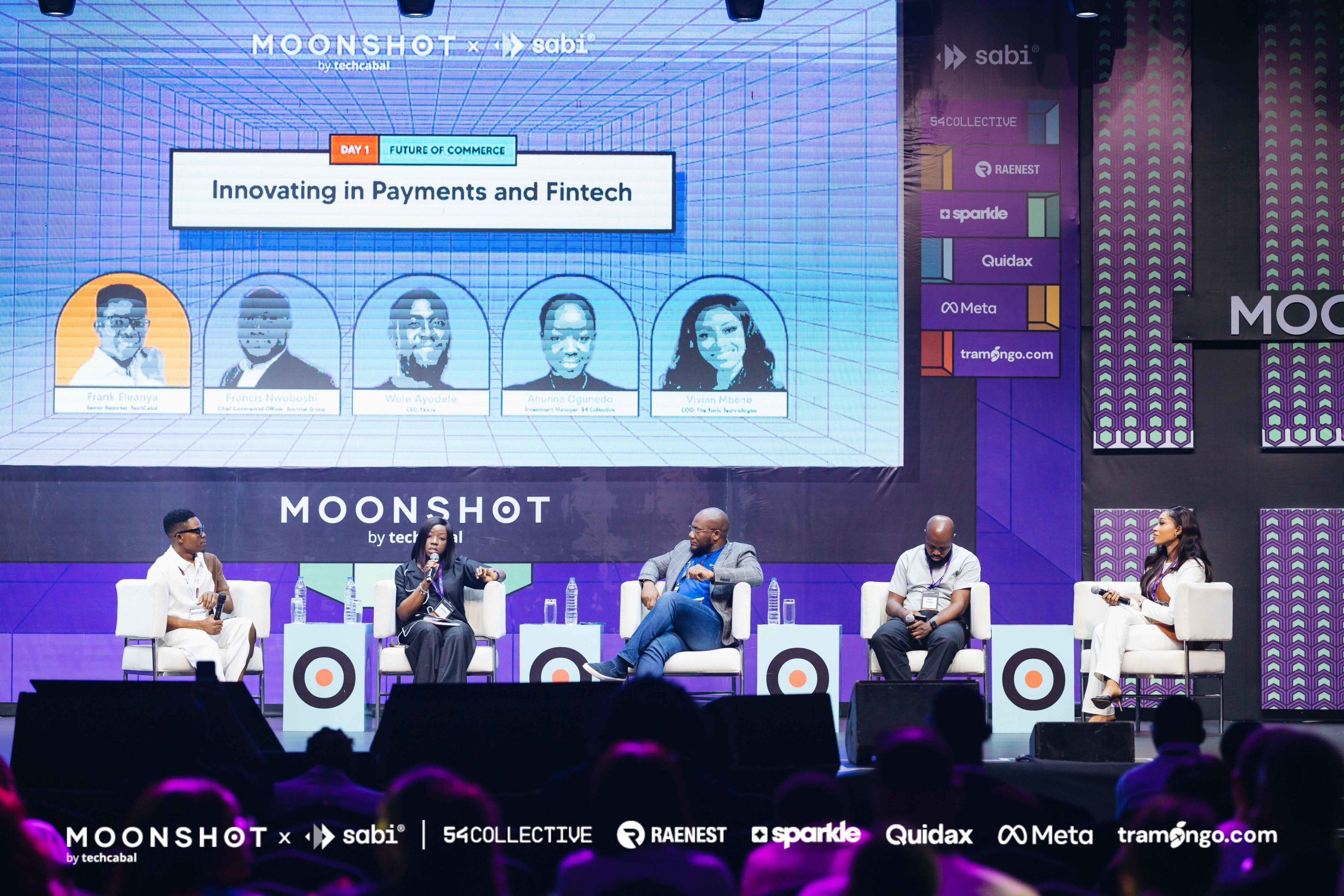An online scam which claims to sell various items, including cell phones, food and unclaimed baggage for P40 (~$3), has claimed several victims in Botswana.
An online scam offering expensive items for sale at a hard-to-believe discounted price of 40 Pula is gaining popularity in Botswana, racking up victims in the hundreds. The scam targets people through sponsored ads on Facebook and Instagram, offering them deals on products from recognisable brands like Game Stores, Cell City, Botswana Post and Chicken Licken.
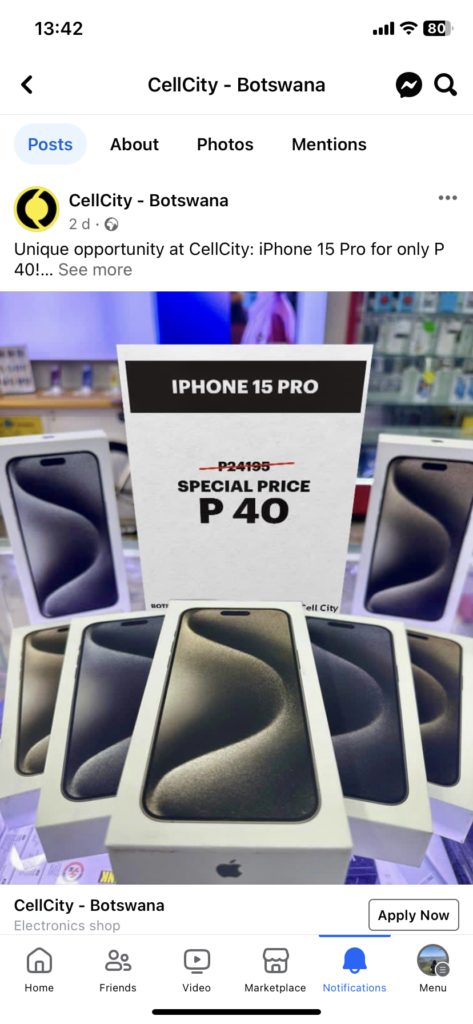
Instead of getting the advertised deal, anyone who clicks on the link would be charged a recurring $40. In one instance, a Chicken Licken meal, which retails for P279 (~$21), was advertised for P40. In another, a Facebook-sponsored post advertised unclaimed post office parcels for P40, while another advertised an iPhone 15 Pro for P40. To seem even more legit, on the comments under the fake Facebook pages mirroring the legitimate brands, there are “testimonials” of previous winners of the products.
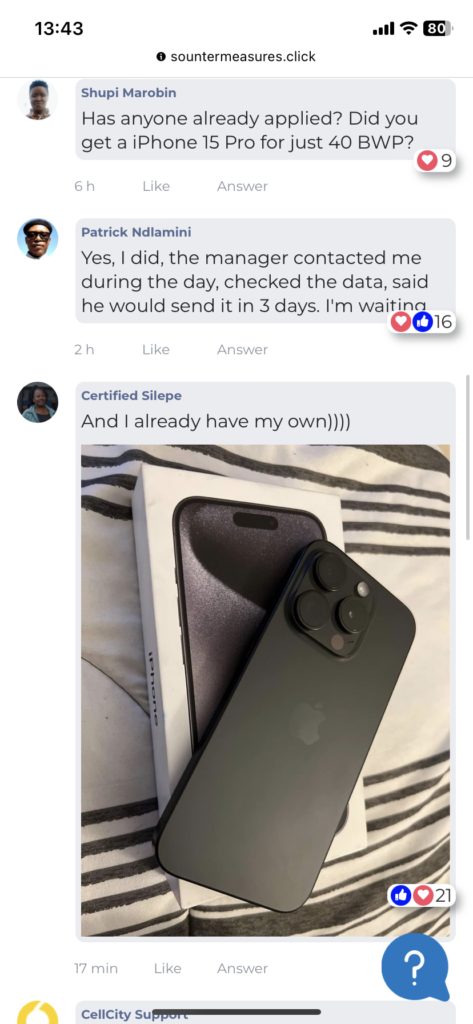
“What startled me was that the transaction was completed without prompting me to validate payment as I usually do for online payments,” one victim of the scam, who asked not to be named, told TechCabal. “When I did a web search, I learned that once such a payment goes through, it would be a recurring payment, so I immediately canceled my card through the app.”
A seemingly well-coordinated scam
An investigation by TechCabal revealed that when anyone clicks on the link displayed on the sponsored ad, it leads to a website where the user is asked to answer some questions related to the product. The links on the sponsored ads vary according to the product. For example, the link for the fake Cell City website shows as “sountermeasures.click” while for the fake Botswana Post website, it shows as “janparcei.com.” After completing the questions about the product, the website directs to a payment portal whose URL is “greenboxpaymentcenter.com.”
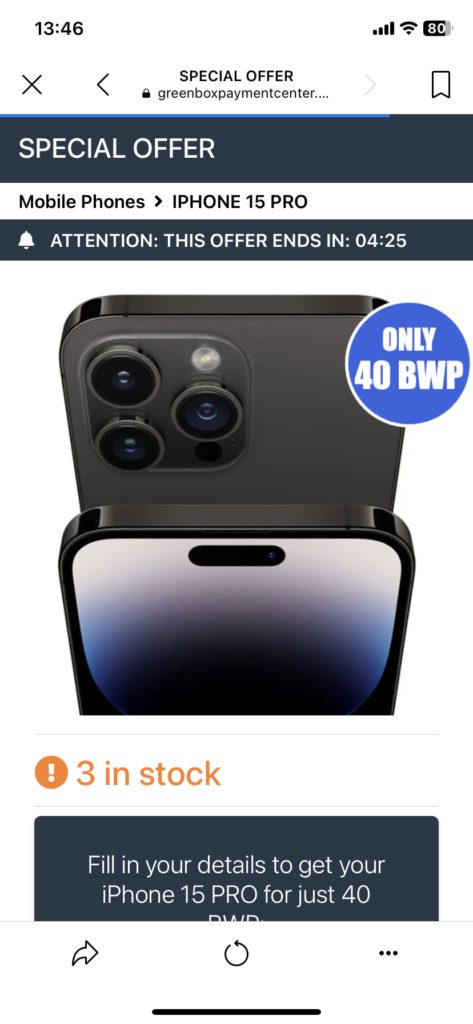
A further inspection of Greenboxpaymentcenter’s domain name shows it was registered on December 1, 2023. After filling in the form on the portal with information, including credit card details and submitting the form, the victim’s card is charged $40 instead of the advertised P40.
According to a payment transaction SMS notice of one of the victims seen by TechCabal, the charging entity is listed as “vgsfvr.com,” which claims to be operated by Host-It Limited, an ecommerce merchant located in the United Kingdom. However, the domain shows that it is owned by an unnamed person or entity registered in Panama. According to previous Reddit complaints, the same domain and several of its variations have also been associated with online scams in the past.
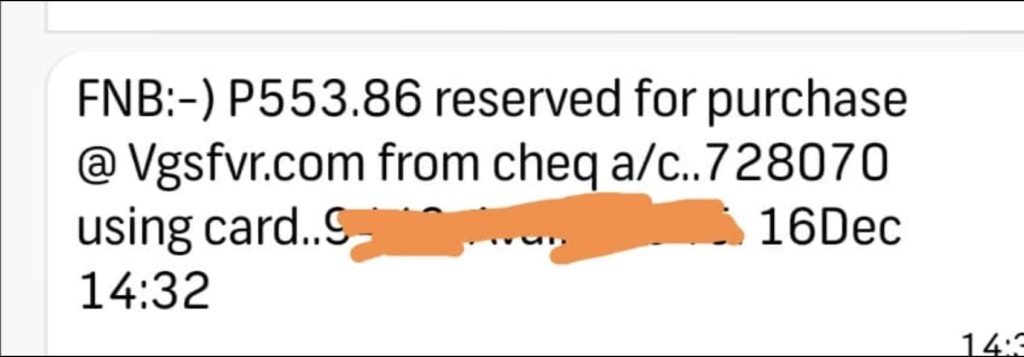
According to vgsfvr.com’s terms and conditions, full access to its so-called “services” costs $39.99, the same amount charged to victims of the “P40 scam”. Vgsfvr’s service is explained obscurely as subscriptions to a “messaging” service. It appears that the scam’s modus operandi is tricking victims into buying a subscription to vgsfvr.com disguised as the P40 products. The website also states that “all memberships will automatically renew monthly for your convenience until canceled”, corroborating the recurring charge stated by victims.
P40 scam taking advantage of naivety
According to Richard Harriman, a consumer protection advocate, to avoid falling victim to such scams, people be more skeptical. Harriman is the founder of a 201,000-member awareness Facebook group called Consumer Watchdog Botswana.
“It makes no sense to buy a phone which costs upwards of P20,000 for only P40,” Harriman told TechCabal. “ These scammers use people’s desperation and naivety so the best countermeasure is to not believe offers which seem way too good to be true.”
Some of the brands being fronted for the scam have come out to caution customers not to fall victim. “Kindly note that there are pages on Facebook and Instagram that are using our logo and name to scam people. Cell City is not affiliated to these pages in any way,” Cell City warned customers.
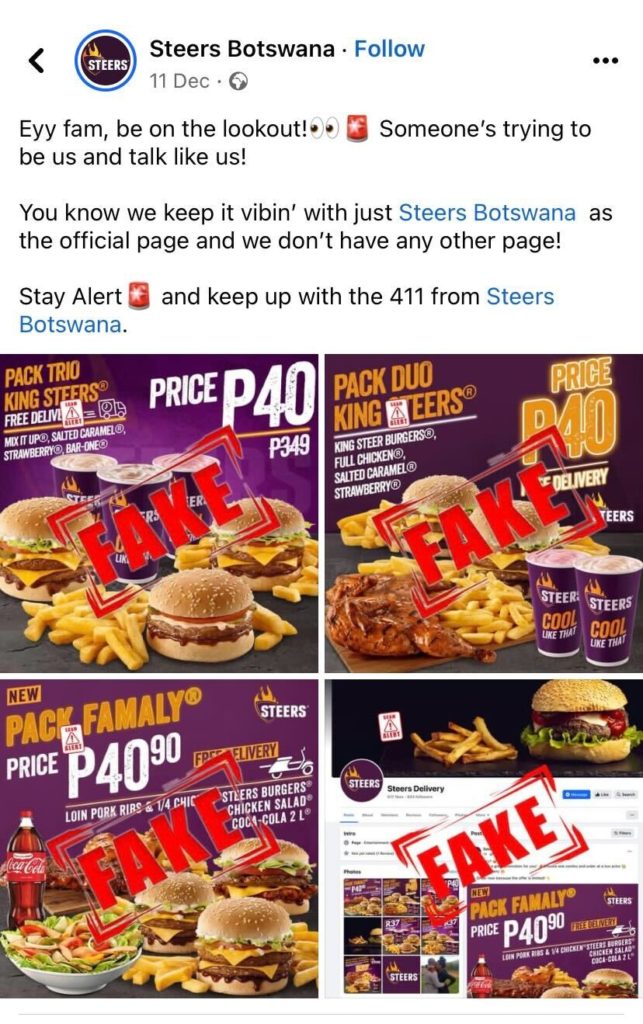
Despite several victims having reported the ads, some of them are still running on Facebook and Instagram. None of the victims TechCabal spoke to had reported the scams to law enforcement officials. TechCabal also reached out to First National Bank regarding how its protecting its customers against such scams but had not received responses by publication.
Over this year, online scams spread through social media have become prevalent in Botswana. In May, a scam purported to invest victims’ funds in products of Ecoplexus, a real US company, costed victims tens of millions of pulas.













